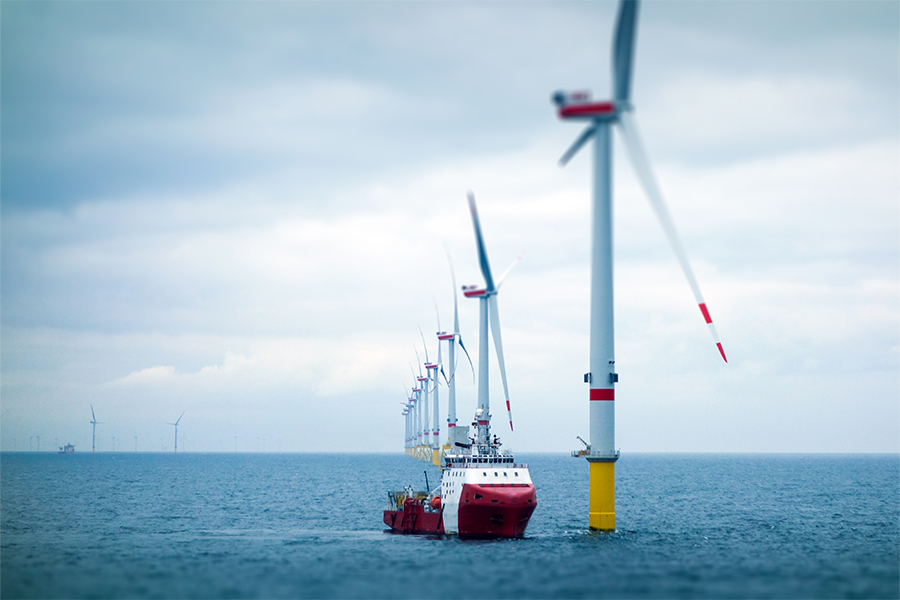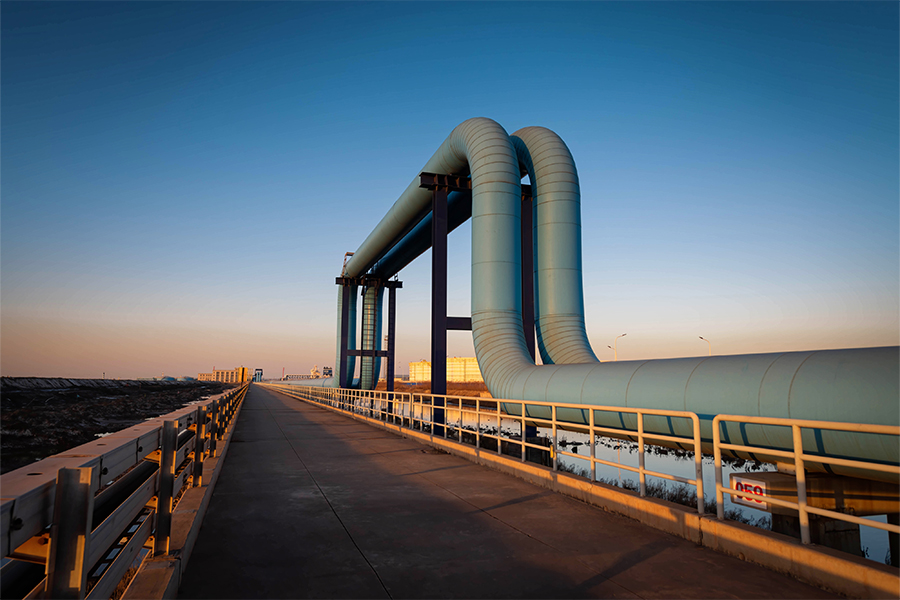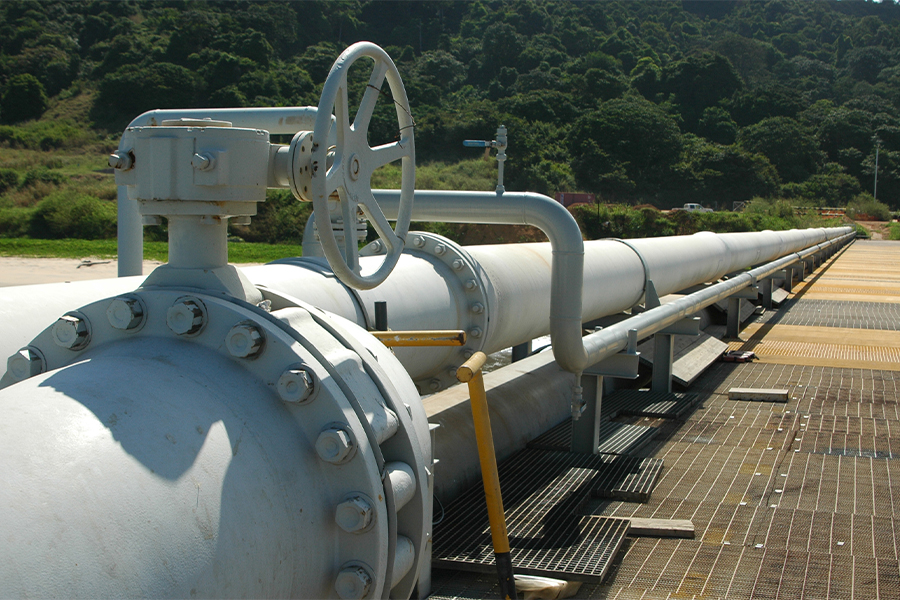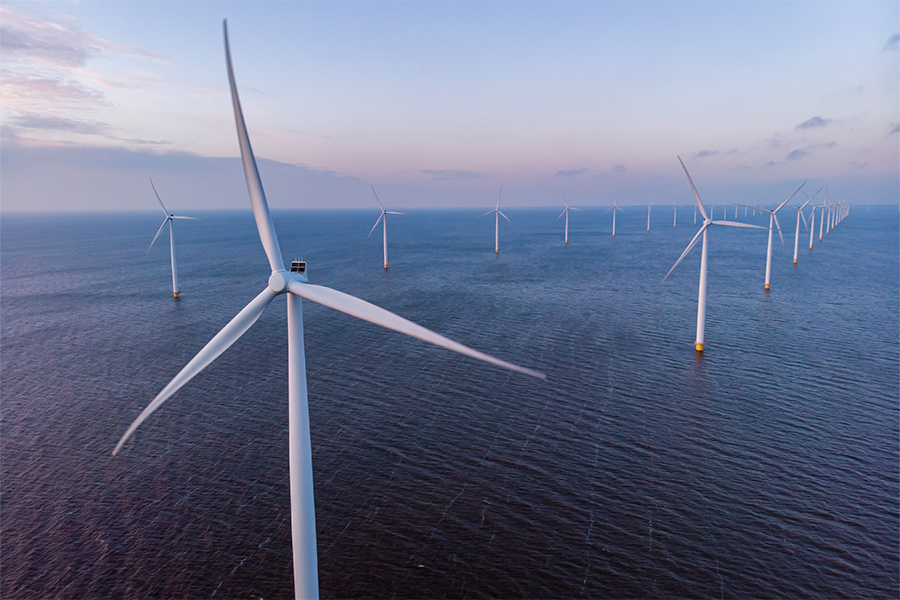
Optioneer for Screening provides EDF a single platform for early stage feasibility studies
EDF Power Solutions need a way to quickly assess viable alternatives for Onshore Wind, Solar and Battery Storage routing projects across the UK & Ireland.

Reduced spend and time-to-decision for routing.
Increased CAPEX certainty, via early identification of risk mitigations required.
Reduced consenting risk, via data-driven consenting narrative creation.
EDF Power Solutions need a way of reviewing the route connection feasibility of all their future onshore renewable projects in one platform.
In general, the UK is a challenging space for developing projects. Liaising with local authorities and land owners can be challenging due to regulations, and data availability. Routes must be designed with both CAPEX, land parcel traversal, and Consenting risk in mind.
One of the core challenges EDF face is assessing viable alternatives in a time-efficient manner. These routes must impact as few land owners as possible to keep CAPEX low. If not achieved, often iteration or rework is required which adds delays to the project. The ability to do very early stage studies efficiently with more data is very important.
The process
Optioneer has been strategically configured for each country within the UK and Ireland - England, Scotland, Wales, Ireland and Northern Ireland. This offers EDF a robust platform for conducting early-stage feasibility studies of renewable energy projects. Leveraging comprehensive scoping data and pre-configured parameters, Optioneer enables project teams to efficiently assess grid connection options, including environmental, social and technical impacts.
This localised setup ensures that region-specific data, such as land use patterns, technical limitations and regulatory constraints are seamlessly integrated into the analysis. Optioneer’s deployment approach has been refined to accelerate project timelines while increasing accuracy in assessing potential development sites.
By standardising the early feasibility process and providing a single collaborative platform, Optioneer streamlines development across the UK and Ireland to make informed decisions at a faster pace, minimising risks and maximising the potential for successful project execution.
Optioneer has been strategically configured for each country within the UK and Ireland - England, Scotland, Wales, Ireland and Northern Ireland. This offers EDF a robust platform for conducting early-stage feasibility studies of renewable energy projects. Leveraging comprehensive scoping data and pre-configured parameters, Optioneer enables project teams to efficiently assess grid connection options, including environmental, social and technical impacts.
This localised setup ensures that region-specific data, such as land use patterns, technical limitations and regulatory constraints are seamlessly integrated into the analysis. Optioneer’s deployment approach has been refined to accelerate project timelines while increasing accuracy in assessing potential development sites.
By standardising the early feasibility process and providing a single collaborative platform, Optioneer streamlines development across the UK and Ireland to make informed decisions at a faster pace, minimising risks and maximising the potential for successful project execution.
The results
Identifying technical feasibility trade-offs: routes typically are cables and try to follow highways, however as connections get longer, there is a push towards OHLs to reduce losses and costs.
Formalised process for routing: often routing has been judgement-based and involves a number of parties. This can increase development timelines and associated Consultant costs.
Early CAPEX estimate accuracy: before these could be inaccurate due to unrefined crossing schedules & liaising with those asset owners.
Reducing compensation measures: as these often add large costs to projects. Therefore, routes should avoid as many land parcels as possible and Optioneer is configured to do so.
Creating a defensible Consent narrative: to support the challenge of intense scrutiny from authorities. By providing several alternatives and exclusions rapidly. Which can be quickly iterated on.
Reducing project attrition & resource efficiencies: quickly and efficiently flagging all risks & costs frees up resources and reduce wastage.
Identifying technical feasibility trade-offs: routes typically are cables and try to follow highways, however as connections get longer, there is a push towards OHLs to reduce losses and costs.
Formalised process for routing: often routing has been judgement-based and involves a number of parties. This can increase development timelines and associated Consultant costs.
Early CAPEX estimate accuracy: before these could be inaccurate due to unrefined crossing schedules & liaising with those asset owners.
Reducing compensation measures: as these often add large costs to projects. Therefore, routes should avoid as many land parcels as possible and Optioneer is configured to do so.
Creating a defensible Consent narrative: to support the challenge of intense scrutiny from authorities. By providing several alternatives and exclusions rapidly. Which can be quickly iterated on.
Reducing project attrition & resource efficiencies: quickly and efficiently flagging all risks & costs frees up resources and reduce wastage.
Optioneer enables a good first assessment at routing. It provides more certainty as to whether a route is optimal as well as better alternatives and can save several days work just to get a starting point. It’s a powerful tool and can very quickly provide lots of useful metrics.
Have you got a similar project to deliver?
Reach out today and see how Optioneer can help streamline your project planning and development.
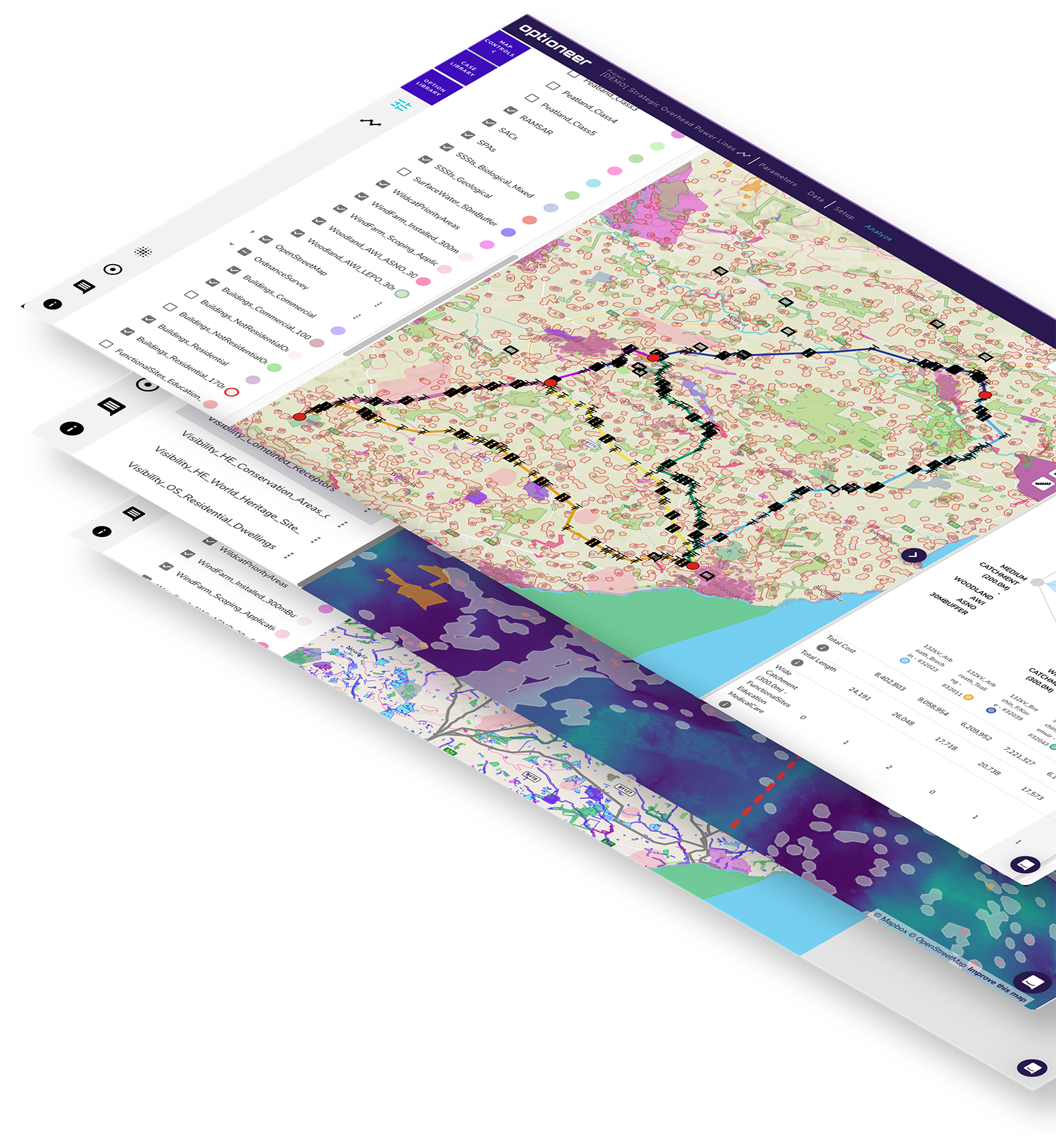
Related success stories
We’ve had the pleasure of working with global leaders in the utilities industry, find out how they achieved results with Optioneer.

We will be in touch with you shortly.









